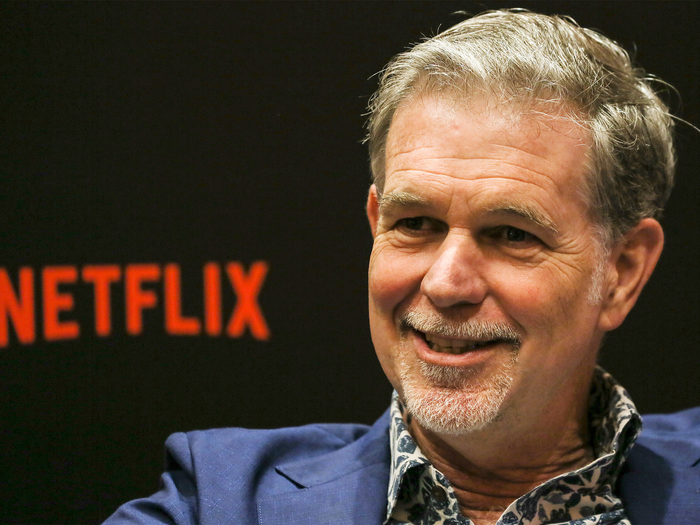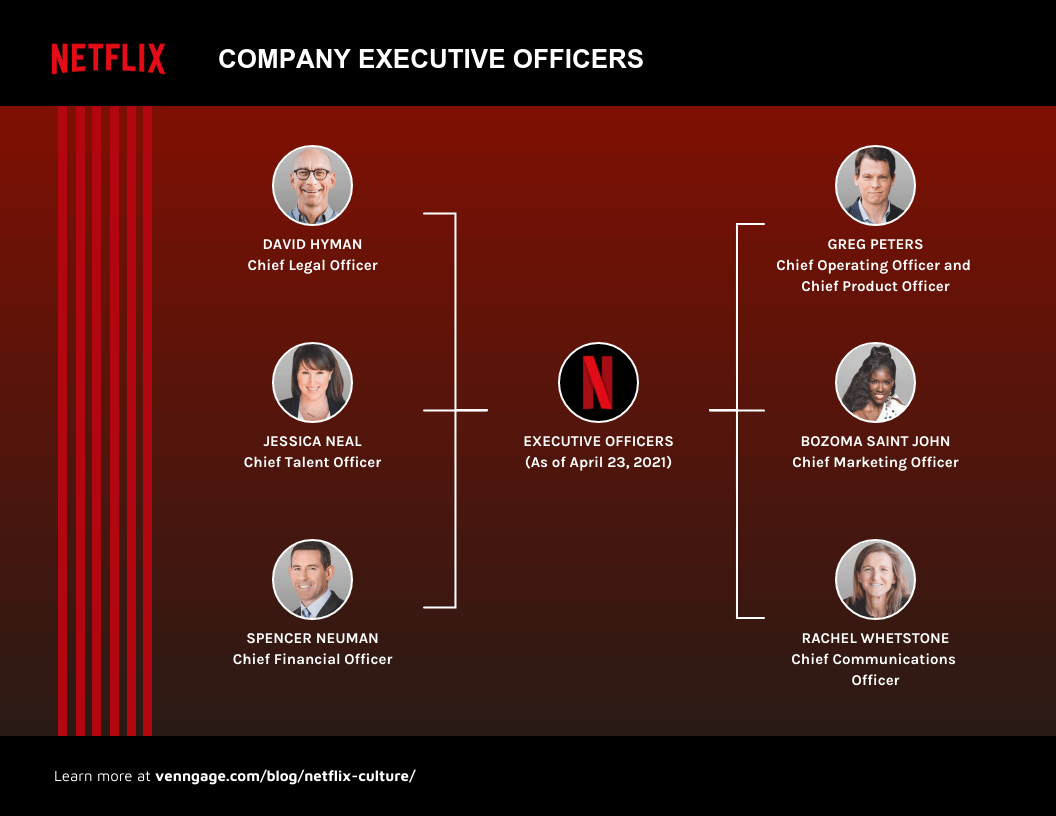Netflix, the global streaming giant, has transformed the entertainment landscape with its innovative approach to content consumption. The question of who owns Netflix is not just about identifying its key stakeholders, but also understanding the broader corporate structure, influential figures, and the evolution of the company. This article delves into the ownership and management of Netflix, providing a detailed analysis of its founders, current executives, major shareholders, and the company’s journey from inception to its present status as a streaming powerhouse.

Introduction
Netflix, founded in 1997, has become synonymous with online streaming. Initially launched as a DVD rental service, it has evolved into a leading global streaming platform, producing original content and distributing movies and TV shows worldwide. Understanding who owns Netflix involves looking at its history, key figures, and the organizational structure that has shaped its success. This article will explore the company’s founders, major shareholders, and current executives, and the impact of these individuals and entities on Netflix’s trajectory.
Early Life of Netflix
Founding and Early Years
Netflix was founded by Reed Hastings and Marc Randolph in Scotts Valley, California. Reed Hastings, a software engineer with a background in computer science, and Marc Randolph, an entrepreneur with experience in marketing and sales, launched Netflix as a DVD rental service by mail. The company aimed to provide an alternative to traditional video rental stores, offering a more convenient and user-friendly experience.
Netflix’s ownership and management, along with notable milestones and achievements:
| Category | Details |
|---|---|
| Founders | Reed Hastings and Marc Randolph |
| Reed Hastings | – Born: October 8, 1960 – Role: Co-chairman of Netflix – Notable Achievements: Early adoption of streaming technology, global expansion, original content production |
| Marc Randolph | – Born: April 29, 1960 – Role: Co-founder, former CEO – Notable Achievements: Innovative subscription model, entrepreneurial ventures |
| Current CEOs | Reed Hastings and Ted Sarandos |
| Ted Sarandos | – Born: July 30, 1964 – Role: Co-CEO – Notable Achievements: Content strategy, partnerships, and deals |
| Major Institutional Shareholders | – The Vanguard Group – BlackRock – Berkshire Hathaway |
| Notable Milestones | – 1997: Founding of Netflix – 1999: Introduction of subscription model – 2007: Transition to streaming – 2013: Launch of original content – 2024: Global presence in over 190 countries |
| Impact on Industry | – Streaming Revolution: Shift from traditional media – Original Programming: Setting new standards – Global Reach: Diverse content access worldwide |
This table provides a concise overview of Netflix’s ownership structure, key figures, major milestones, and its impact on the entertainment industry.
In 1999, Netflix introduced its subscription model, allowing customers to rent unlimited DVDs for a flat monthly fee. This innovation set the stage for Netflix’s future success. The company’s early years were marked by a focus on technology and customer service, which helped it stand out in a competitive market.
Career and Major Achievements
Reed Hastings
Reed Hastings, born on October 8, 1960, is a prominent figure in the tech industry. Before co-founding Netflix, he had a successful career as a software developer and entrepreneur. Hastings’ vision for Netflix was to create a seamless and user-centric entertainment experience, which drove the company’s early innovations. His leadership and strategic decisions played a crucial role in Netflix’s transformation from a DVD rental service to a global streaming platform.
Hastings’ achievements include:
- Early Adoption of Streaming Technology: Netflix’s decision to pivot to streaming in 2007 was a game-changer, positioning the company as a leader in the digital entertainment space.
- Original Content Production: Netflix’s foray into original content with shows like “House of Cards” and “Orange Is the New Black” marked a significant milestone, establishing the company as a major player in content creation.
- Global Expansion: Under Hastings’ leadership, Netflix expanded its services to over 190 countries, making it a global entertainment brand.
Hastings’ contributions to Netflix’s success have earned him numerous accolades, including recognition as one of the most influential business leaders in technology.
Marc Randolph
Marc Randolph, born on April 29, 1960, is a co-founder and former CEO of Netflix. Randolph’s background in marketing and business development complemented Hastings’ technical expertise, making them a formidable team. Although he left Netflix in 2002, Randolph’s influence on the company’s early success was significant.
Randolph’s achievements include:
- Innovative Business Model: Randolph was instrumental in developing Netflix’s subscription-based rental model, which disrupted the traditional video rental industry.
- Entrepreneurial Ventures: After leaving Netflix, Randolph continued to be an influential entrepreneur, investing in and advising various startups.
Randolph’s contributions to Netflix’s early growth and his subsequent entrepreneurial endeavors have cemented his legacy in the tech industry.
Current Ownership and Management
Reed Hastings and Ted Sarandos
Reed Hastings and Ted Sarandos are the key figures in Netflix’s ownership and management. Reed Hastings serves as the co-chairman of Netflix’s board, while Ted Sarandos holds the position of co-CEO alongside Hastings. Sarandos, who joined Netflix in 2000, played a pivotal role in the company’s shift to original content and has been a driving force behind its success.

Ted Sarandos: Born on July 30, 1964, Sarandos joined Netflix as the Chief Content Officer in 2000. His vision and expertise in content acquisition and creation have been crucial in establishing Netflix as a leading producer of original programming. Sarandos’ contributions include:
- Content Strategy: Sarandos spearheaded Netflix’s investment in original content, resulting in critically acclaimed shows and movies.
- Partnerships and Deals: Under Sarandos’ leadership, Netflix secured partnerships with prominent filmmakers and content creators, expanding its content library and influence.
Major Shareholders
Netflix is a publicly traded company, meaning its ownership is distributed among a wide range of shareholders. Some of the largest institutional shareholders include:
- The Vanguard Group: Vanguard is one of the largest institutional investors in Netflix, holding a significant percentage of the company’s shares. Vanguard’s investment reflects its confidence in Netflix’s long-term growth prospects.
- BlackRock: Another major institutional investor, BlackRock holds a substantial stake in Netflix. BlackRock’s investment strategy often includes high-growth companies like Netflix.
- Berkshire Hathaway: Warren Buffett’s Berkshire Hathaway has also been a notable shareholder in Netflix. Although its stake has fluctuated, Berkshire Hathaway’s involvement underscores the company’s appeal to prominent investors.
Legacy and Impact
Disruption of the Entertainment Industry
Netflix’s impact on the entertainment industry cannot be overstated. Its innovative approach to content distribution and consumption has reshaped the way people access and enjoy media. Key aspects of Netflix’s legacy include:
- Streaming Revolution: Netflix’s success with streaming technology paved the way for other digital media platforms, leading to a shift away from traditional cable and satellite television.
- Original Programming: By investing in original content, Netflix has influenced the entire entertainment industry, setting new standards for content creation and distribution.
- Global Reach: Netflix’s international expansion has made it a global brand, bringing diverse content to audiences around the world and fostering a new era of global entertainment.
Influence on Media Consumption
Netflix has changed the way people consume media, from binge-watching entire seasons of shows to accessing a vast library of content on-demand. The company’s focus on user experience and convenience has set new benchmarks for digital entertainment.
Conclusion
Understanding “who owns netflix” involves more than just identifying its key stakeholders. It requires a comprehensive look at the company’s founders, current executives, major shareholders, and its broader impact on the entertainment industry. Reed Hastings and Ted Sarandos have played pivotal roles in shaping Netflix’s success, while major institutional investors have contributed to its growth and stability. Netflix’s legacy as a pioneering force in digital media is a testament to its innovative approach and enduring influence on the global entertainment landscape. See More.